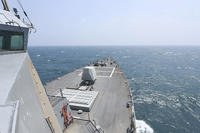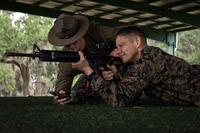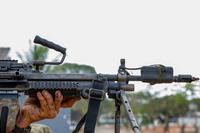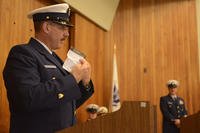Don't tell the members of the 1st Marine Expeditionary Force about information overload. They already know all about it.
During Gulf War II, members of the force often had to use a helmet headset, four radios and two laptops at once to communicate with their comrades and commanders -- all while crammed into light armored vehicles crawling across the Mesopotamian desert.
An analysis of the 1st Marine Expeditionary Force's experience in central Iraq has yielded a number of important lessons about what gadgets worked and what high-tech equipment flopped in Gulf War II.
The primary finding, according to the field report by Marine Corps Systems Command: "Marines were overwhelmed with the high number of varied communications equipment they were expected to use."
During the war, U.S. chieftains and military analysts talked with wide-eyed wonder about how quick and how perfectly seamless communications between U.S. troops had become. In a matter of minutes, they crowed, a tip about Saddam Hussein's location became an assault on a Baghdad restaurant.
Now, it seems, that flawless network is at least equal parts Rube Goldberg and Henry Ford.
"They had a communication system for every eventuality, and for every issue," said Patrick Garrett, an analyst with the defense think tank Globalsecurity.org. "But they really didn't integrate them all together."
My Wired News story has more on the Marine's communications woes.
THERE'S MORE: This story is unfair, one Defense Tech reader complains. The military identified these gaps long ago, and has been steadily working to fix them. The Joint Tactical Radio System ("JTRS"), when it's finally ready, promises to solve most of these shortcomings.
All true. But, in many cases, the Marines' inability to talk had nothing to do with technology. It was a matter of logistics. Marine units often received radios that were incompatible with one another. If all of 1 MEF had been outfitted with a common set of radios, their problems in this area would have been largely solved.
TOUGH TALKING FOR MARINES IN IRAQ
© Copyright 2024 Military.com. All rights reserved. This article may not be republished, rebroadcast, rewritten or otherwise distributed without written permission. To reprint or license this article or any content from Military.com, please submit your request here.








